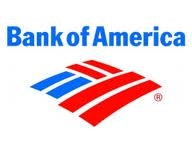
That being said, there’s a trade-off associated with paying your mortgage down in one fell swoop. And in many cases, it simply isn’t the prudent thing to do even if you have the means at your disposal. What follows, in turn, are five questions to help you to decide whether the trade-off is worth it.
1. Do you have ample liquidity?
Two things happen when you pay off your mortgage. First, you eliminate a liability — in other words, a debt — from your balance sheet. And second, you transform one asset into another — in this case, probably cash or stocks into a house.
The virtues of the first are self-evident, as you no longer have a debt hanging over your head akin to the Sword of Damocles. In addition, it frees you from paying interest and thereby enriching the increasingly unpopular increasingly unpopular mortgage giants, including Wells Fargo & Co (NYSE:WFC) and Bank of America Corp (NYSE:BAC), the first and third largest mortgage originators in the country. Bank of America Corp (NYSE:BAC), in fact, now has the worst reputation in the entire banking industry.
The second one, however, isn’t quite so clear cut. Sure, owning your home outright is great, but you can’t cut off a part of the kitchen counter to pay for groceries. Nor does the electric company accept a chunk of drywall in lieu of cash.
The point is that you should only convert liquid assets into an illiquid asset if you have an abundance of the former (and will continue to even after doing so). If you think it’s a drag to pay a mortgage every month, just imagine not having the means to put food on the table or gas in the tank.
2. What’s the opportunity cost of your money?
Along these same lines, even if you have an abundance of liquid assets lying around, that still doesn’t mean you should necessarily convert them into a house. You first have to consider what you’d be giving up versus what you’re getting in return — something economists refer to as “opportunity cost.”
While a house may be an asset, that doesn’t mean it’s also an investment. The reality is that home prices don’t appreciate over the long run, at least not in excess of inflation. According to Robert Shiller, probably the foremost (and legitimate) expert on home prices, “From 1890 to 1990, real inflation-corrected home prices were virtually unchanged.” And unlike dividend-paying stocks or interest-bearing bonds, they don’t produce income.
As a result, you should think long and hard before giving up the opportunity of actual investments in exchange for what amounts to a home’s deadweight on your personal balance sheet.
3. Should you refinance instead?
There’s been a lot of discussion in the media recently over mortgage rates. And rightly so. Since the end of May, the average rate on a 30-year fixed-rate mortgage has skyrocketed, going from below 3.5% to above 4.5% — though they recently settled back down to around 4.37%.
But what’s often lost in the hysteria, is that mortgage rates are still dirt cheap. The average rate on 30-year fixed-rate mortgage since 1971 is 8.61%, or nearly twice the current rate. As a result, maybe the right question isn’t whether you should pay off your mortgage, but rather whether you should refinance it.
As my colleague Dan Caplinger recently discussed, the key to any refinancing decision is how much money you can save by doing so. “Typically, one rule many people follow is that if you can cut your interest rate by a full percentage point without having to pay points or other big costs to get a new mortgage, then refinancing makes sense.”

